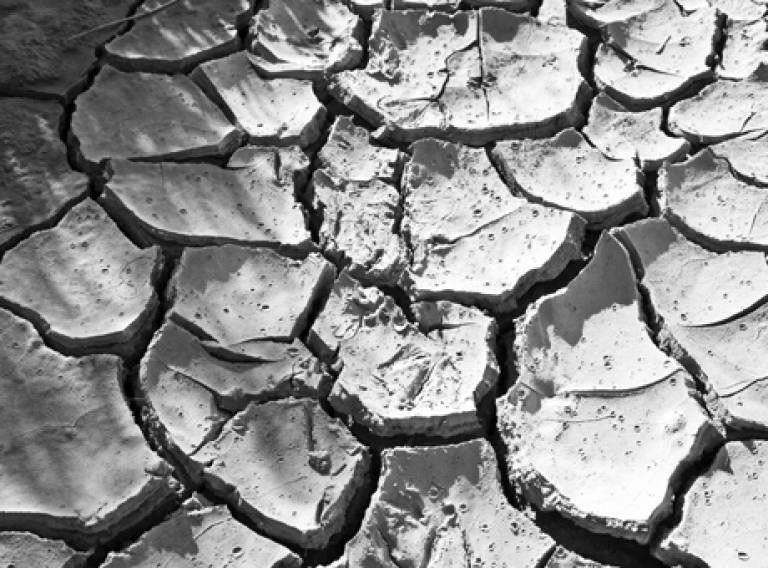Flushing out the answer to drought
22 March 2012

We’re facing the worst British drought for 30 years and London and the South East will be hit particularly hard by hose-pipe bans. So, what can we as individuals do to reduce water usage? Bartlett lecturer, Tse-Hui Teh talks to the Bartlett Communications Team on World Water Day about practical steps that Londoners can take to fight the water shortage.
Q: So, what can the ordinary person do to reduce the amount of water they use?
A: One thing householders can easily do to reduce water consumption in the face of droughts and hosepipe bans is reduce the number of times they flush the toilet. Most people won’t realise this, but toilet flushing comprises about 30% of their household water consumption. Each person uses about 150-160L a day. By flushing the toilet less, they could save about 40-50L of water per person!
Q: But, surely you have to flush the toilet every time you use it.
A: Actually no. Many environmentally aware citizens already practice yellow-mellowing. This is when you only flush if you’ve done a poo. The ditty to remind you what to do is: “If it’s yellow, let it mellow. If it’s brown, flush it down”.
Q: But is this sanitary?
A: This is not a health hazard because urine is sterile, it is the faeces that contains the pathogens. A step further would be to change to a dry sanitation system. It is truly ridiculous to have the water borne waste transport system that we have, when we are living in a water short area. The water borne system damages our environment by taking away water from our rivers and streams, and then damages our environment again by discharging warm, nutrient rich water into aquatic environments. We actually have a workshop happening at UCL this autumn which will explore this very issue and how it would integrate with the existing urban form.
Q: So one option is flushing less or dry sanitation systems. Is there anything else we can do?
A: The other approach is to recycle used, or “grey-water”. “Grey-water” is water that comes from washing (ie. laundry, showers, baths, dish washing etc) that is not contaminated by faeces, and can be used to water gardens for instance. This water is essentially still clean, but contains nutrients such as dirt and soap therefore it must be used in 2-3 days so that it does not stagnate. I have it on hearsay that the soap in the water keeps the aphids away from the rose bushes, so it might be even better than using drinking-water to water the garden!
Londoners need to make more grey-water connections on a household level. Things like tanks that would store grey-water to flush the toilet and water the garden, rather than using drinking water
On a larger scale, recycling water through local water recycling systems would make a big impact. A combination of biological and technological means could be used to treat grey-water to a high level, so that it could be reused as drinking-water. This would result in new ecologies, landscapes and public spaces.
Q: Are there any examples of these systems at work?
A: Yes, there are water recycling systems at BedZed in Hackbridge and Findhorn Ecovillage As for dry sanitation Growing Communities in Hackney and Beech Hill Community in Devon are using this system successfully. Dry sanitation and water recycling are not however widespread.
Q: Why do you think these systems are not more widely used?
A: It is not widespread because most people do not realise their impact on the environment from water consumption and therefore do not act to change their habits or water consuming technologies Homeowners can take action on their own, but many people do not feel that clean water availability is a pressing issue in their lives. After all, the tap never runs dry of water.
Q: To wrap up, if you could leave Londoner’s with a particular message about their water usage what would it be?
A: Most people use water without thinking about how much they are using, where it is coming from and where it is going to. I think if people were more mindful about all these things, our water availability and environment would improve dramatically.
 Close
Close

